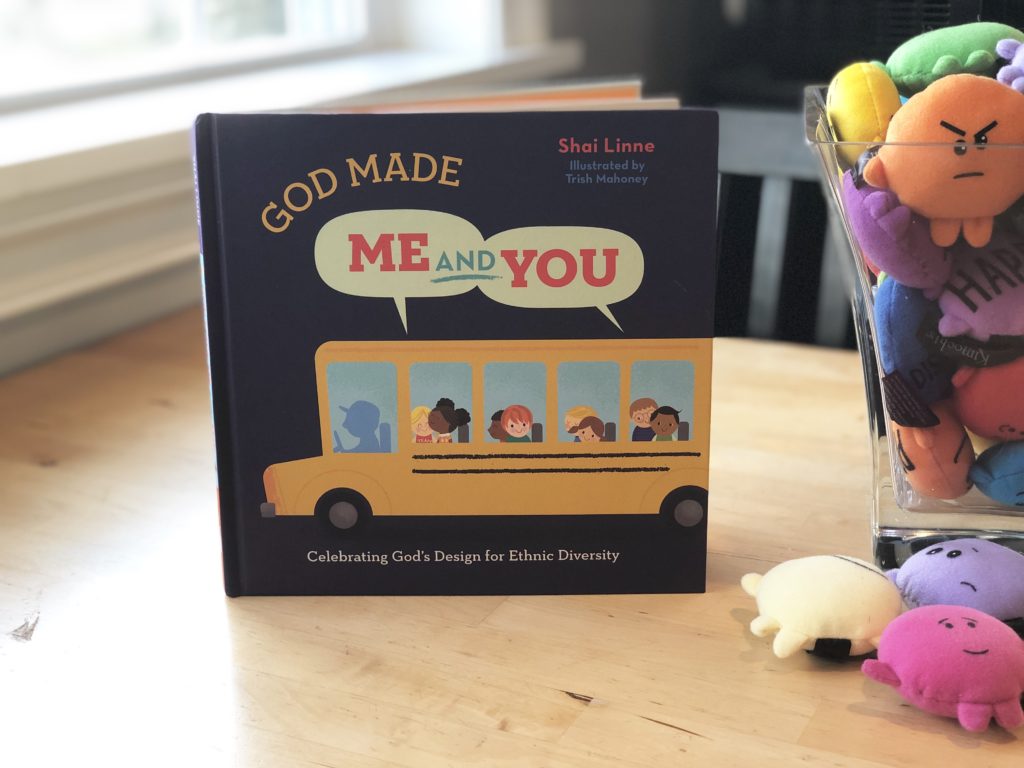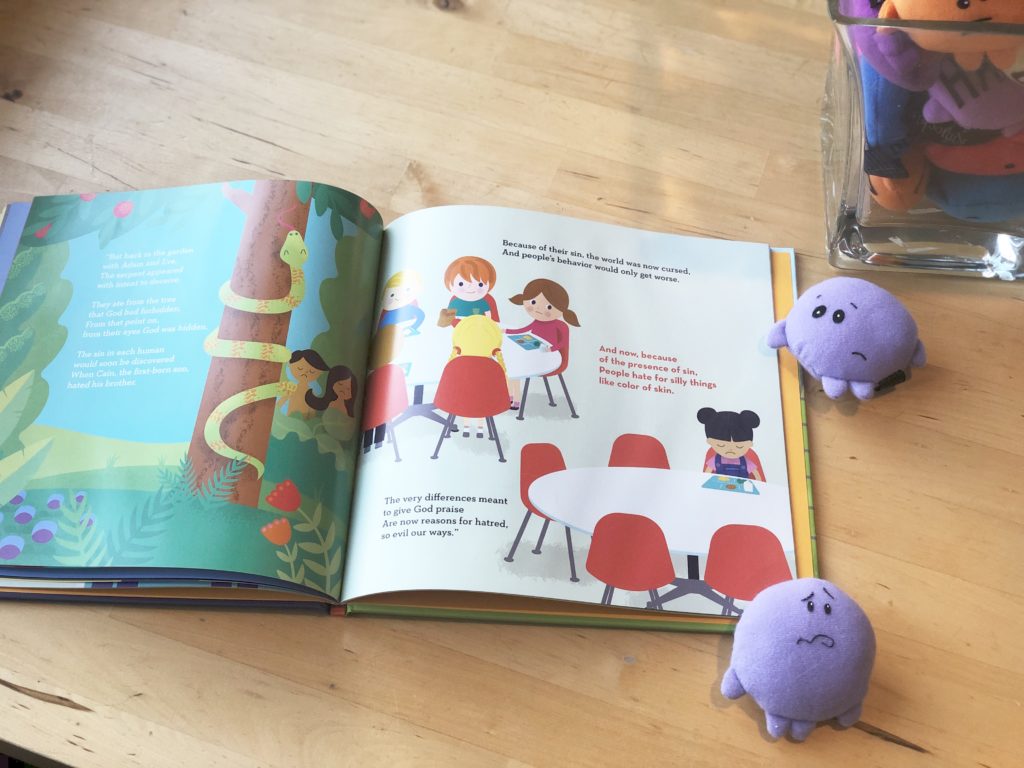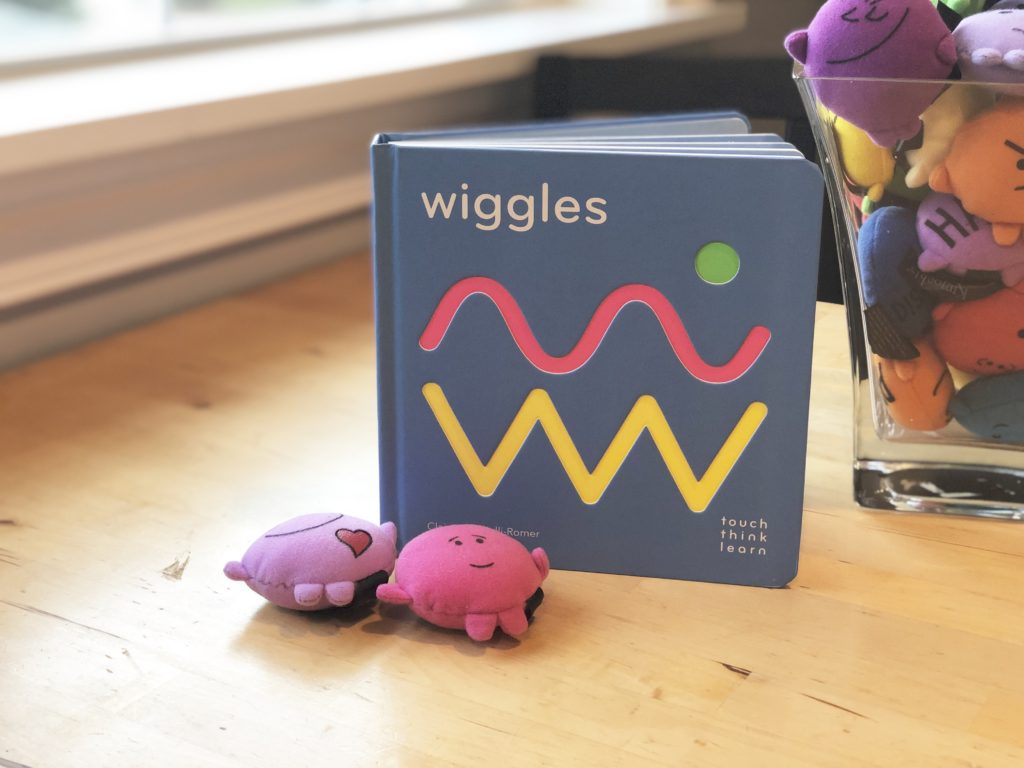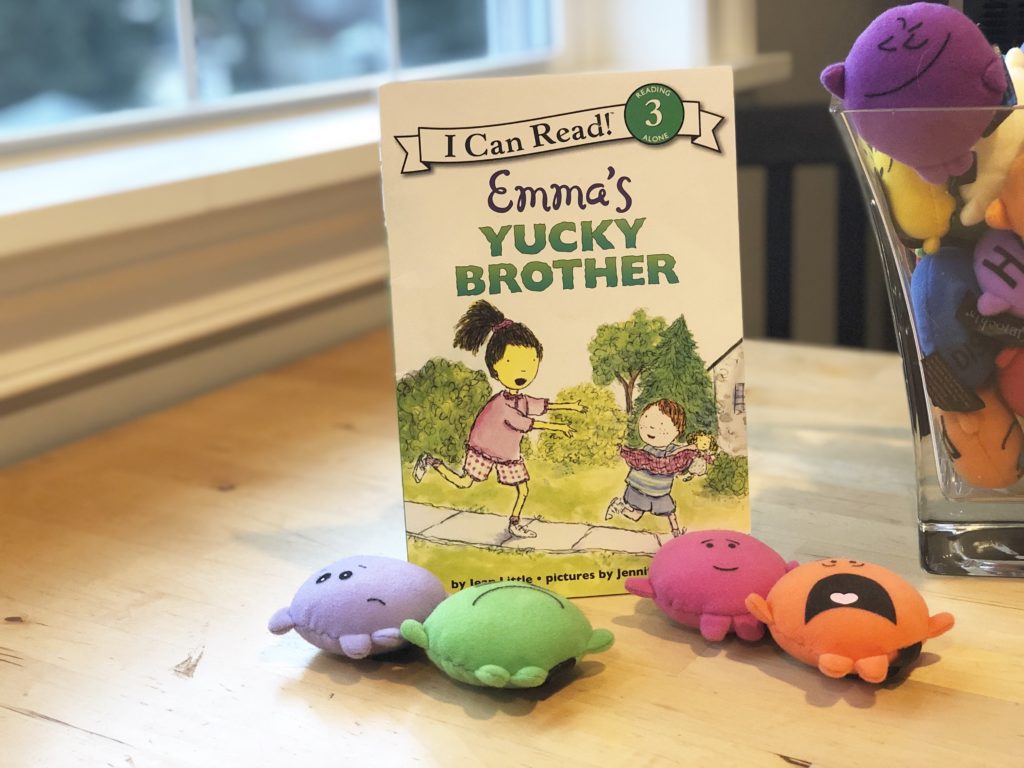We’re happy to have this new title on The Sparrow Fund’s shelves. In sing songy rhyme, God Made Me and You starts in a Bible-class classroom in Grace Christian School where teasing leads to tears. With crisp and bright illustrations, the book walks through how the teacher explains a diverse creation that all came together with the crown jewel of God’s hand–man and woman. Differences are magnified and celebrated with word (“what some call ethnicity and others call race, we should celebrate as a gift of God’s grace.”) and illustrations that include what looks to be a transracial couple with the man in a wheelchair, a child with a facial birthmark, one with dark glasses seemingly blind, a child with hearing aids and braces on teeth and on legs. The author explains that because of the “presence of sin, people hate for silly things like color of skin.”
The author doesn’t leave us there. He explains that God already had a solution in mind and sent Jesus to die for the sins of mankind, a solution that means that one day we’ll “no longer view our distinctions as odd, but rather, more reasons to give praise to God.”
Of note:
- The child teased in the beginning didn’t want to speak up when the teacher asks him why he’s crying, so a classmate gives the teacher the lowdown. This could be used as an opportunity to talk with your kids about how they respond to helpers when they have big feelings.
- When the teacher hears what happens, the first thing she does is tell the two boys who teased to ask for forgiveness. Then, she reminds the students of the classroom rules and tells them it’s a privilege to attend that school and that they will be expelled if they cannot keep the rule to respect all God’s creatures. We aren’t fans of enforcing asking for forgiveness before inviting some reconciliation, nor are we fans of threatening to send children away if they cannot keep the rules. Use her response as an opportunity to talk about what she may have been feeling and why she may have responded the way she did.
- At the end of the book, the author included a full spread entitled “Six Ways to Help Your Child Appreciate God’s Design for Ethnic Diversity.” This spread alone is worthwhile. We love his list and the way he explains each point.
Who says board books are only for babies? This one called Wiggles is good for kids right up to middle school and maybe beyond that. With a manageable size and strong pages that have die-cut out tracks throughout, we have found this title a neat one to use with a child and a parent in the context of attachment work. A parent can hold one side and a child the other. They can each take their own finger and trace the track on their page as the words direct (fast, slow, hip hopping, etc.). Our favorite part may be when the finger on the left meets the finger coming from the right and they get to kiss in the middle. It invites connection and creativity between parent and child (can you try it with child guiding mama’s hands? how about child guiding one hand of Mom and one hand of Dad?). And, you know, we’re all for tools that invites smiling and fun.
Emma’s Yucky Brother isn’t a new title, but it’s one we’re glad to have recently added to our shelf. It tells the story of Emma and her expectations of becoming a big sister to 4-year-old Max who her family is adopting. She’s sure he won’t be a pest like some little brothers are and that he’ll be little and sweet. She’s surprised when he’s bigger than he looked in his picture, when he doesn’t smile so much, when he calls her cookies yucky, when he doesn’t acknowledge a gift she gave him which she bought with her own money, and when he wants to play with other kids more than her. Her understanding and heart for him grows when she sees him grieving for his foster mom, and she decides she’s in (“Max sure is a pest, but he is the best pest ever.”). But being in doesn’t mean it’s easy. He calls her yucky and says he doesn’t need a sister. She’s mad–of course, she’s mad. But, her heart grows when she finds him crying under his bed. But, she gets mad again when he breaks her special doll, and she tells him to get lost. And, he does. Her heart grows again when she finds him crying again, and she tells him to ask her for help next time he breaks something, “that’s what sisters are for.” We love this book for normalizing all the big feelings that can come with older child adoption for children already in the home and for helping the whole family understand how sad can look like mad and how we can show love even when it’s hard.




